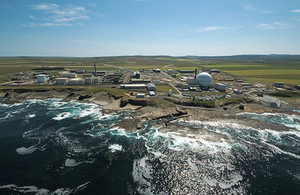A charity originally set up to establish memorials to D-Day veterans, and which now supports former members of the armed forces, has been successfully reconstructed as a result of a Charity Commission inquiry that facilitated the appointment of new trustees.
The Commission’s existing engagement with The Veterans Charity escalated to a formal inquiry in April 2015, after three individuals connected to the charity, including the chief executive, were arrested by British Transport Police over concerns about the charity’s fundraising practices. The publication of the report was delayed as the Commission awaited the outcome of the trial of the charity’s chief executive for charges of theft and fraud by abuse of position; that trial ended when the judge ordered the jury to find him not guilty due to a lack of evidence.
The Commission used its powers on opening the inquiry to safeguard the charity’s assets by freezing the bank accounts; while that freezing order was in place, the regulator monitored and authorised all of the charity’s expenditure, ensuring that each transaction was necessary and a proper application of the charity’s funds. It also exercised other statutory powers to ensure that funds collected from the public in particular through an annual event known as The Forces March were adequately protected while reconstruction took place.
During the early stages of the inquiry, the Commission identified a number of shortcomings in the charity’s administration, including that the charity’s finances were under the sole control of the chief executive, with limited oversight by the trustees. For a significant period of time the chief executive had sole control of the charity’s bank accounts, including its cheque book, debit card and online banking facility.
The inquiry found that nearly £38,000 of the charity’s expenditure had been withdrawn as cash during the period between January 2010 and May 2015, equating to over £500 each month. The inquiry was informed by the charity that the invoices for expenditure before 2013 were lost as a result of an office move. The inquiry was advised that cash withdrawals were used to repay subsistence claims for expenditure on charity business including accommodation, fuel, event costs such as the purchase of stocks, and support for beneficiaries. However there was very little supporting documentary evidence to confirm how these charitable funds had been applied.
In a report published today, the regulator concludes that the trustees of the charity at the time the inquiry opened were responsible for mismanagement in the administration of the charity, after failing to properly oversee the charity’s chief executive or implement effective financial controls or maintain adequate financial records.
Notwithstanding these concerns, the inquiry was satisfied as a result of its investigative work that the charity was undertaking work to provide urgent short term support for veterans in need. It therefore sought volunteers from the charity sector to assist in the charity’s reconstruction. Three people stepped forward to help – two of whom remain as trustees today.
The Commission revoked its protective measures in early 2016 following the strengthening of the charity’s governance and financial controls. The Commission is satisfied that its original regulatory concerns have been addressed following a further inspection of records and meeting with the trustees.
Harvey Grenville, Head of Investigations and Enforcement at the Charity Commission, says:
This charity has undertaken valuable work to support veterans in urgent short term need, and our report acknowledges the new trustees’ contribution to the reconstruction of this charity. This is a collaborative model with sector professionals which we would like to see further developed to assist the reconstruction of certain charities which are in difficulty.
The charity’s work prior to this reconstruction was undermined by poor management on the part of the charity’s trustees at the time. This was a charity without adequate systems and controls in place, and limited oversight of the chief executive by the trustees. This is unacceptable, and we are critical of the trustees at that time for their failings.
When the public give to charity, they have a right to expect that their donations will be carefully managed, and be applied solely in furtherance of the charity’s aims. Trustees may hand day-to-day operations to staff – but they must retain oversight, and ultimately, they are always responsible for everything that happens in their charity.
I am grateful, especially to the new trustees, for their hard work in turning the charity around, and ensuring its processes and systems are strengthened so that the charity’s work can continue.
The investigation concludes with the publication of this report. The full report is available on gov.uk.
